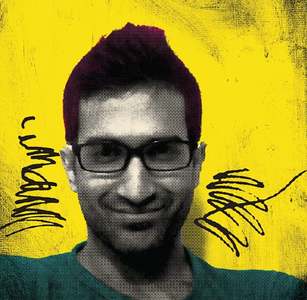The Punjab home ministry on Tuesday apprised the Lahore High Court (LHC) that releasing Jamaat-ud-Dawa (JuD) chief Hafiz Saeed from house arrest will likely create a situation of unrest in the province, DawnNews reported.
The ministry stated this in a written reply submitted before the court during the hearing of an appeal for the release of JuD chief.
During the hearing, the counsel for Saeed A. K. Khokhar argued that Saeed's detention was illegal and baseless, thus the LHC should rule in favour of the defendant and discard the order of keeping JuD leader under house arrest.
"The defendant was put under house arrest after the US threatened to cut Pakistan's aid; it was done without any cases being registered against him," Khokhar argued.
Upon this, the judges pointed out that the defendant's lawyer had made no mention of the US's alleged pressure in the case. They added that the defendant's application is based on a news clipping.
The home ministry, on the other hand, in their written reply to the LHC, said that the JuD chief was put under house arrest under the anti-terrorism laws to keep him from collecting funds — which is a violation of various resolutions of the United Nations.
The reply said that the reports by police and the counter terrorism department's operational branch on the matter have also been submitted before the court.
It also pointed out that various cases were registered against members of JuD for collecting hides during the three days of Eidul Azha in contempt of the ministry's orders.
Cases were also registered against the party for collecting funds in contempt of the provincial ministry's orders, the reply said.
It was also mentioned in the provincial ministry's reply that the Election Commission of Pakistan has asked the JuD's political wing Milli Muslim League's (MML) candidate for NA-120 by-polls to remove Saeed's pictures from the promotional posters.
In the light of these facts, to release Saeed from house arrest will lead to unrest in the province, the provincial ministry concluded in their reply.
After listening to the arguments from both sides, the court asked Khokhar to present more arguments in the next hearing, while adjourning the case until Sept 15.
On January 01, the provincial authorities had issued orders to place Saeed under house arrest; the JuD chief had been detained under Section 11-EEE(1) of the Anti-Terrorism Act, 1977.
Saeed has been accused by the United States and India of masterminding the 2008 attacks on the Indian financial capital Mumbai that killed 166 people.
He, however, has repeatedly denied involvement in the 2008 Mumbai attacks.
In 2012, the United States announced a bounty of $10 million on Hafiz Saeed for his alleged role in the attack in which six American citizens were also killed.













































